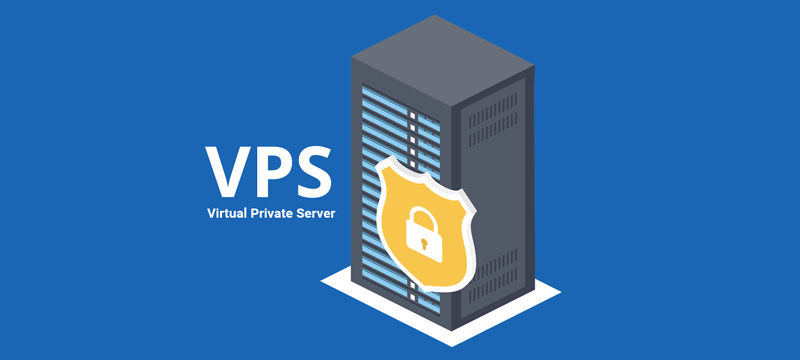
One of the two most confused technical terms VPS and VPN stand for Virtual Private Server and Virtual Private Network respectively. A VPS is a service sold by any Internet hosing service whereas a VPN is also a service but aims in keeping you and your data private when you use the web.
Today, in this blog we are going to learn what are exactly a VPS and a VPN, their function and differences.
Also Read: What is the Best Windows VPS Hosting?
VPS (Virtual Private Server):
VPS is a form of web hosting offered by any Internet hosting service that would give you the ideal virtual server for hosting our very own website.
Let’s make it simpler, a server is the computer that stores the various files and data. Now when we search for any website in any of the browsers, then the browser promulgates with the server and renders the stored files and data of that site.
There are various forms of different types of web hosting that includes dedicated hosting, shared hosting, managed hosting, shared hosting, managed hosting, WordPress VPS hosting, cloud hosting and so on.
Also Read: Linux VPS vs. Windows VPS
A virtualization technology is used for splitting a single physical server into different other virtual servers. This would allow a greater access to the server resources and also would provide the ability of expansion of the virtual server with the increase in the number of demands of you.
This would enable the sharing of actual physical servers with the use of virtualization technology so that there is no overlap of server usage.

Functioning of VPS Hosting:
Its operation is similar to that of the software VMware whose function is enabling to run multiple virtualized operating systems from a single server. Which means you can switch your MacBook’s OS MacOS quickly to Windows 10 without even restarting your computer.
A VPS server runs a virtual server environment using the same technology. This means that you can create many a virtual servers on top of your own dedicated server such that the other virtual servers act as their own environments. Each VPS server is private and is isolated from other virtual servers using the same physical server.
Also Read: What You Need to Know When Setting Up Your VPN Using Windows
Pros and Cons of VPS Hosting:
Pros:
- It is cost-conscious.
- Greater server personalization: You would pay according to your demands and for features that you need for running your website.
- Full admin access.
- Fully Scalable.
Cons:
- Comparatively expensive than shared hosting.
- Prone to resource allocation issues.

Why Should I Use VPS Hosting?
The important situations in which you may require VPS hosting are as follows:
- You require speed and performance for your site because of higher traffic.
- You require a custom server setup that would get you more control over your server thus allowing you to choose your own OS and making other customizations.
- You demand for flexible server sources for handling the great traffic in your site.
Also Read: Protect Yourself From Windows 10 Vulnerabilities With The Best VPNs
VPN (Virtual Private Network):
A VPN is responsible for the creation of secured private network which would afterwards extend across your entire network connection. Your VPN client of the software of choice would automatically encrypt any data sent over the connection once the software is boosted up.
Functions:
VPN software would encrypt every data that passes through any network connection of yours. The data would first pass through the VPN and then it would go ahead. If you connect to the internet without any VPN then your data transmission would be open and not at all secured. It would be of great trouble when you would share sensitive information like bank details, important documents and so on. A VPN software removes any kinds of approachable risks to your data while it gets transmitted.
Also Read: Why The PPTP VPN Protocol Is Not Secure?
Pros and Cons of Using a VPN:
Pros:
- A VPN allows you access to certain restricted contents, meaning it grants access to geo-restricted contents.
- Your data would be secured as VPNs always encrypt data before transfer of it.
- Routine access to any unsecured Wifi could be bolstered by the use of any VPN and would ensure that you are safe online.
Cons:
- A VPN adds layers of encryptions which slows down the internet connection and ultimately virtually unusable.
- VPNs may provide a secured environment for data transfer but security issues can still arise such as DNS or IP leaks which might expose your promised-to-be secured data.
- A VPN connection can drop making you lose all existing anonymity. Although, there are VPNs available that would disconnect you from the internet if such a drop occurs.
Also Read: How To Add A VPN Connection In Windows 10?

Why Should I Use a VPN?
The main function of a VPN is already discussed above. The VPN is mainly used for data encryption across a connection but here are some of the other possible reasons of why you may need a VPN as follows:
- You want to get around the various content blocks of various countries that have censored their content.
- You demand for a secured private platform for data transfer over a network connection.
- You want to remain online by keeping your IP address, VPN IP and other personal information fully anonymous.
- You are accessing unsecured Wifi networks which may be any public or outside of your home Wifi.
Hopefully, you now have ample amount of knowledge and sense of the differences between a VPS and a VPN, their functions. I hope you won’t ever again be confused between a VPS and a VPN, would you?

